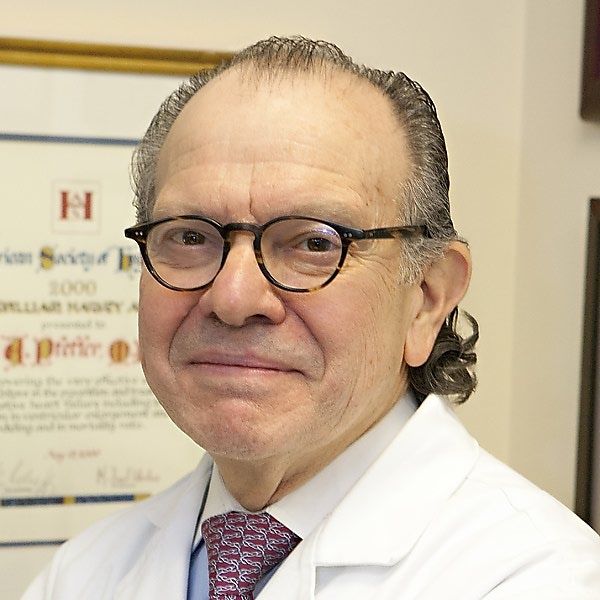Sacubitril/Valsartan Misses Significant HF Event Reduction Mark in PARADISE-MI
Though the combination heart failure therapy did provide overall benefit versus ramipril in post-heart attack patients, the rate of events reduced was not considered significant.
Marc Pfeffer, MD

Combination therapy sacubitril/valsartan (Entresto) was not associated with significantly reduced risk of heart failure nor cardiovascular death versus angiotensin converting enzyme (ACE) inhibitor ramipril among patients treated after a myocardial infarction, according to new findings from the PARADISE-MI trial.
The Novartis-funded research, presented at the American College of Cardiology (ACC) 2021 Annual Scientific Sessions this weekend, provides the first large-scale assessment of the neprilysin inhibitor and angiotensin receptor blocker (ARB) therapy combination in reducing heart failure-associated hospitalizations and death among patients at greater risk of such events due to a heart attack.
Sacubitril/valsartan has been previously approved by the US Food and Drug Administration (FDA) for the reduced risk of cardiovascular death or heart failure hospitalization in adult patients with chronic heart failure and reduced ejection fraction (HFrEF), as well as pediatric symptomatic heart failure with systemic left ventricular systolic dysfunction in patients aged 1 year and older.
Study
Study lead author Marc Pfeffer, MD, professor of Medicine at Harvard Medical School and cardiologist at Brigham and Women’s Hospital, presented findings from the Prospective ARNI Versus ACE Inhibitor Trial to Determine Superiority in Reducing Heart Failure Events after Myocardial Infarction (PARADISE-MI) on May 15.
Pfeffer and colleagues enrolled 5669 patients from 41 countries who had survived a myocardial infarction less than 1 week prior to enrollment.
Patients were observed to have high risk of heart failure development based on a litany of risk factors; a majority of patients were taking antiplatelet, antihypertensive, and cholesterol-lowering therapy prior to randomization.
Investigators randomized patients 1:1 to sacubitril/valsaratan and ramipril for a median follow-up period of 23 months. The team sought a primary endpoint of composite cardiovascular death, hospitalization due to heart failure, or development of symptomatic heart failure. They set a threshold of 15% reduced risk of such events for patients administered sacubitril/valsartan, to signify significant improvement against ramipril.
Key secondary endpoints included cardiovascular death, heart failure hospitalization, non-fatal heart attack or non-fatal stroke, and all-cause death.
Findings
Pfeffer and colleagues observed a 10% lowered risk of the composite primary endpoint in patients treated with sacubitril/valsartan versus those administered ramipril—short of the 15% mark for significant improvement.
However, they did observe a 21% reduction in total heart failure burden including recurrent events in the patients administered sacubitril/valsartan, and achievement of improved risk reduction in all key secondary endpoints.
Adverse event frequency was similar across the 2 treatment groups, and included angioedema, abnormal potassium levels, renal impairment, and liver abnormalities. Hypotension was more frequent among sacubitril/valsartan-treated patients.
In a statement accompanying the findings, Pfeffer called the PARADISE-MI results consistent to the proposal of sacubitril/valsaratan as an incrementally improved treatment for heart failure reduction over ramipril.
“The results are encouraging, especially when considering recurrent heart failure events and not just the first heart failure events, but the study is not definitive,” he wrote. “We did notice several aspects of heart failure development that were lessened with sacubitril/valsartan but to investigate these observations would require further evaluations.”
Though the trial “may not change guidelines,” Pfeffer stated it should provide physicians greater ease in prescribing the therapy to patients with heart failure.